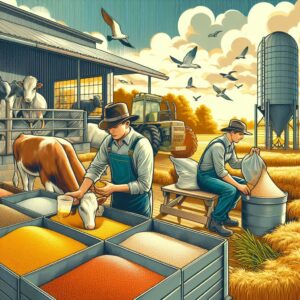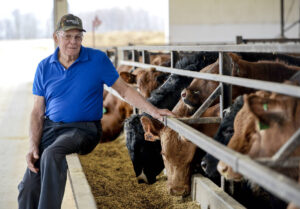
Farm Dictionary 4.jpg
Digestibility Coefficient
Definition: digestibility coefficient
digestibility coefficient: The proportion of food digested and not excreted, shown as a percentage of the total food eaten. Understanding the digestibility coefficient is important for evaluating the nutritional value of animal diets. Farmers should work with veterinarians and nutritionists to develop highly digestible and nutritious diets for their livestock. Implementing proper dietary practices will enhance the productivity and welfare of livestock.
Originally posted 2006-10-08 19:22:00.
Fall off the barn roof and busted your keister? Life on the farm or ranch can be tough on the bum. Need a break? Laugh it off at FarmerCowboy.com, the #1 farm humor site. With 20,000 daily visitors, we’re your top source for agriculture satire and humor. Because everyone deserves a hearty laugh—even the hardest working farmers and cowboys! Join us and turn those long days into fun tales at FarmerCowboy.com.
Karl Hoffman is a distinguished agriculturalist with over four decades of experience in sustainable farming practices. He holds a Ph.D. in Agronomy from Cornell University and has made significant contributions as a professor at Iowa State University. Hoffman’s groundbreaking research on integrated pest management and soil health has revolutionized modern agriculture. As a respected farm journalist, his column “Field Notes with Karl Hoffman” and his blog “The Modern Farmer” provide insightful, practical advice to a global audience. Hoffman’s work with the USDA and the United Nations FAO has enhanced food security worldwide. His awards include the USDA’s Distinguished Service Award and the World Food Prize, reflecting his profound impact on agriculture and sustainability.



